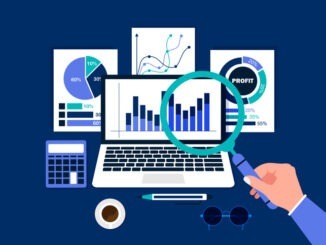
As a follow-up to our article on elevating sales effectiveness, review how to successfully measure your sales process and use the data to achieve better results.
CREDIT: This is an edited version of an article that originally appeared on Ron Sela
Effective measurement provides SME owners with concrete data and insights, enabling you to make informed decisions and refine your sales tactics. It empowers you to allocate resources more efficiently, prioritise high-impact areas, and adjust your approach based on real-world performance. This iterative process of evaluation and adjustment is essential for staying competitive in a dynamic marketplace and ultimately achieving better results, be it increased revenue, higher conversion rates, or improved customer satisfaction.
Defining key performance indicators (KPIs)
As an SME owner, you know that key performance indicators (KPIs), are crucial metrics you’ll use to measure the effectiveness of your sales process.
Here are five common KPIs for measuring sales effectiveness:
- Conversion rate: Conversion rate measures the percentage of leads or prospects that successfully transition through each stage of the sales funnel and ultimately become paying customers.
- Sales revenue: The total revenue generated by your sales team is a fundamental KPI. It provides a clear picture of the financial impact of your sales efforts.
- Average deal size: Average deal size measures the average monetary value of each sale. Monitoring this KPI helps you understand the typical purchase size of your customers.
- Sales cycle length: The sales cycle length is the time it takes from the initial contact with a lead to closing the deal. Shorter sales cycle generally indicates a more efficient and effective sales process.
- Customer acquisition cost (CAC): CAC measures the cost associated with acquiring a new customer. It includes expenses related to marketing, sales, and lead generation efforts.
Collecting data and analysis
In order to measure the effectiveness of your sales process, you’ll need to collect a significant amount of data and analyse it carefully. To strategically choose what to track and measure, here’s a six-step process you can follow:
- Gather data: Collect data from various sources, such as your CRM system, marketing automation tools, and sales reports. This data should cover the entire sales funnel, from lead generation to customer retention. Ensure data accuracy and consistency by regularly updating and cleaning your databases.
- Segment your data: Segment your data to understand different aspects of your sales process better. You can segment by sales team, product/service, customer demographics, or sales channel. This allows you to identify trends and patterns within specific subsets of your business.
- Create data visualisation: Utilise data visualisation tools and software to create charts, graphs, and dashboards that make the data more accessible and easily understood. Visualisations can help you spot trends, anomalies, and correlations at a glance.
- Analyse performance: Analyse the data to assess the performance of your sales process. Look for areas where your KPIs are meeting or exceeding targets and areas where they are falling short. Pay attention to conversion rates at each stage of the sales funnel and the time it takes to move leads through the pipeline (sales velocity).
- Benchmarking: Compare your sales metrics with industry benchmarks or competitors’ performance to gain additional context and insights.
By consistently collecting and analysing data, you can fine-tune your sales process, maximise efficiency, and achieve better results over time. Data-driven decision-making is a powerful tool for optimising your sales efforts and staying competitive in the market.
Conducting sales team feedback
You’ll already know that conducting regular feedback sessions with your sales team is a crucial part of measuring the effectiveness of your sales process. These sessions offer valuable insights into what’s working and what isn’t within your sales approach. Track their progress against set goals and analyse deviations. This approach helps identify gaps in skills or processes, which you can address through training or process improvements.
Optimising sales effectiveness is a systematic, data-driven, and continuous process. From defining Key Performance Indicators (KPIs) and collecting and analysing data to conducting regular feedback sessions with your sales leaders, every step contributes to refining your sales process. By employing this multi-faceted approach, SMEs can ensure they meet their objectives and stay competitive in a constantly evolving marketplace.


Be the first to comment